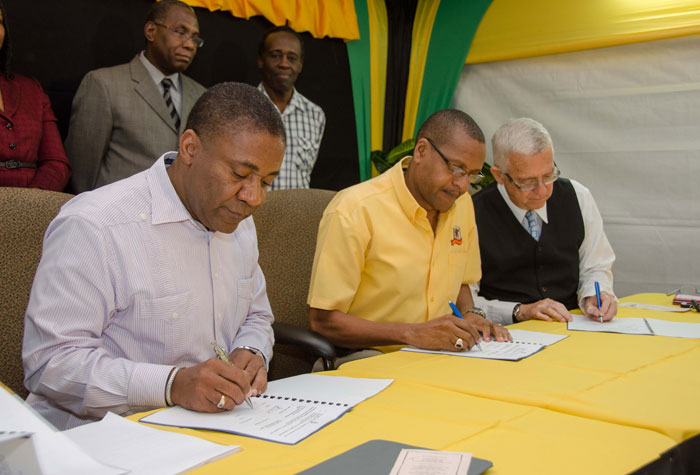Parents to Pay Minimal Fee for Tablet Computers After Pilot
By: , November 13, 2014The Key Point:
The Facts
- He noted that currently, there is no charge for the device under the one-year pilot phase now underway.
- Special measures will be implemented to assist children on the Programme of Advancement Through Health and Education (PATH) programme.
The Full Story
Minister of Science, Technology, Energy and Mining, Hon. Phillip Paulwell, says that under the next phase of the Tablets in Schools initiative, beneficiaries will be required to pay a minimal fee for the device.
He noted that currently, there is no charge for the device under the one-year pilot phase now underway.
“We will not be able to provide free tablets for the rest of the school population, there has to be some element of cost sharing,” Mr. Paulwell informed.
The Minister was speaking at a contract signing ceremony for e-resources at the Petroleum Corporation of Jamaica, in New Kingston, November 12.
He said the Government is cognisant of the fact that some children, for example those on the Programme of Advancement Through Health and Education (PATH) programme, will not be able to afford it and so special measures will be implemented to assist those children.
The Minister noted that even though the parents will have to purchase the devices, “they will be relieved, by and large, from purchasing traditional books.”
“Parents will no longer have to fork out $15,000 and $20,000 per annum to purchase books, where Little Johnny has to struggle with a knapsack to school. All of that we want to have on the tablet, paid for out of the resources of the State,” he said.
The Minister said that with the purchase of the device, the parents will become meaningful stakeholders in the process.
For his part, Minister of Education, Hon. Rev. Ronald Thwaites, urged teachers to familiarise themselves with the virtual age, and use devices to heighten teaching and learning experiences.
The Tablets in Schools pilot programme is being implemented by E-Learning Jamaica Limited at a cost of $1.4 billion.
The one-year pilot will be carried out in 38 educational institutions and will see the distribution of tablets to benefit 24,000 students and 1,200 teachers in six pre-primary,13 primary, five all age and junior high, and 12 high schools; one teacher’s college; and one special education institution.
Following a review of the pilot, the programme will be rolled out across the island, to benefit 600,000 students and teachers.

